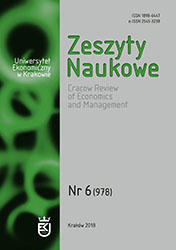Ideał bycia sobą we wczesnych pracach Fryderyka Nietzschego (przyczynek do dyskusji nad koncepcją autentyczności Charlesa Taylora)
The Ideal of Being True to Oneself in the Early Works of Friedrich Nietzsche – a Contribution to the Discussion about Charles Taylor’s Notion of Authenticity
Author(s): Leszek KusakSubject(s): Anthropology, Social Sciences, Cultural Anthropology / Ethnology
Published by: Wydawnictwo Uniwersytetu Ekonomicznego w Krakowie
Keywords: being true to oneself; authenticity; individualism; relativism; instrumental reason; horizons of significance
Summary/Abstract: In "The Ethics of Authenticity", Charles Taylor presents a critique of individualism which is dominating modernity. It is characterised by relativism, moral subjectivism and narcissism, and it results in the atomisation of social life. Friedrich Nietzsche is cast in the role of the spiritual father of these harmful phenomena, as – according to Taylor – he changed the respect-worthy ideal of authentic life into its opposite – egocentric self-realisation.Towards debating Taylor’s point of view, the article looks at the frequently overlooked fact that Nietzsche’s ideal of “being true to oneself” evolved over time and changed in the successive periods of his activity. In his youth (1869–1874), the author of "The Birth of Tragedy" argued for so-called intelligent egoism and being true to oneself, defined as self-realisation, which is aware of responsibility for the common good. The ideal of “being true to oneself” presented by the young Nietzsche therefore meets Taylor’s requirements of “true authenticity”.
Journal: Zeszyty Naukowe Uniwersytetu Ekonomicznego w Krakowie
- Issue Year: 978/2018
- Issue No: 6
- Page Range: 123-136
- Page Count: 14
- Language: Polish

